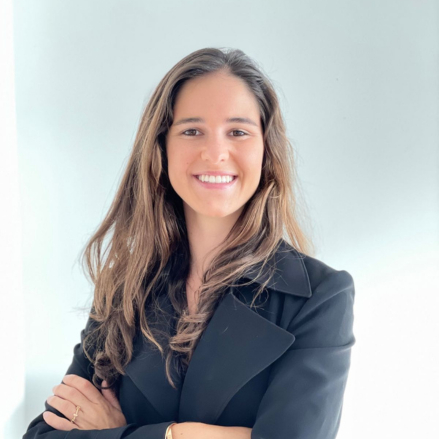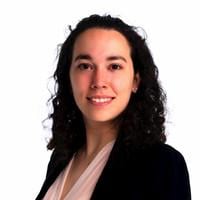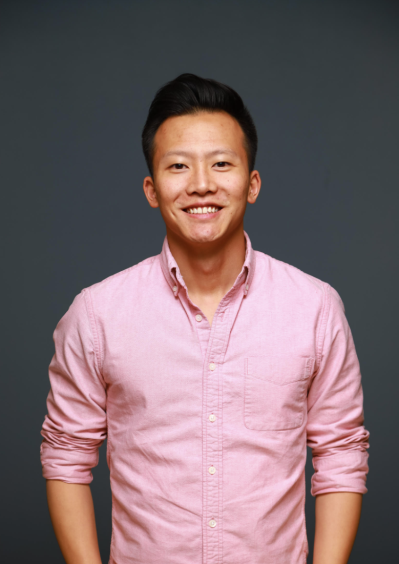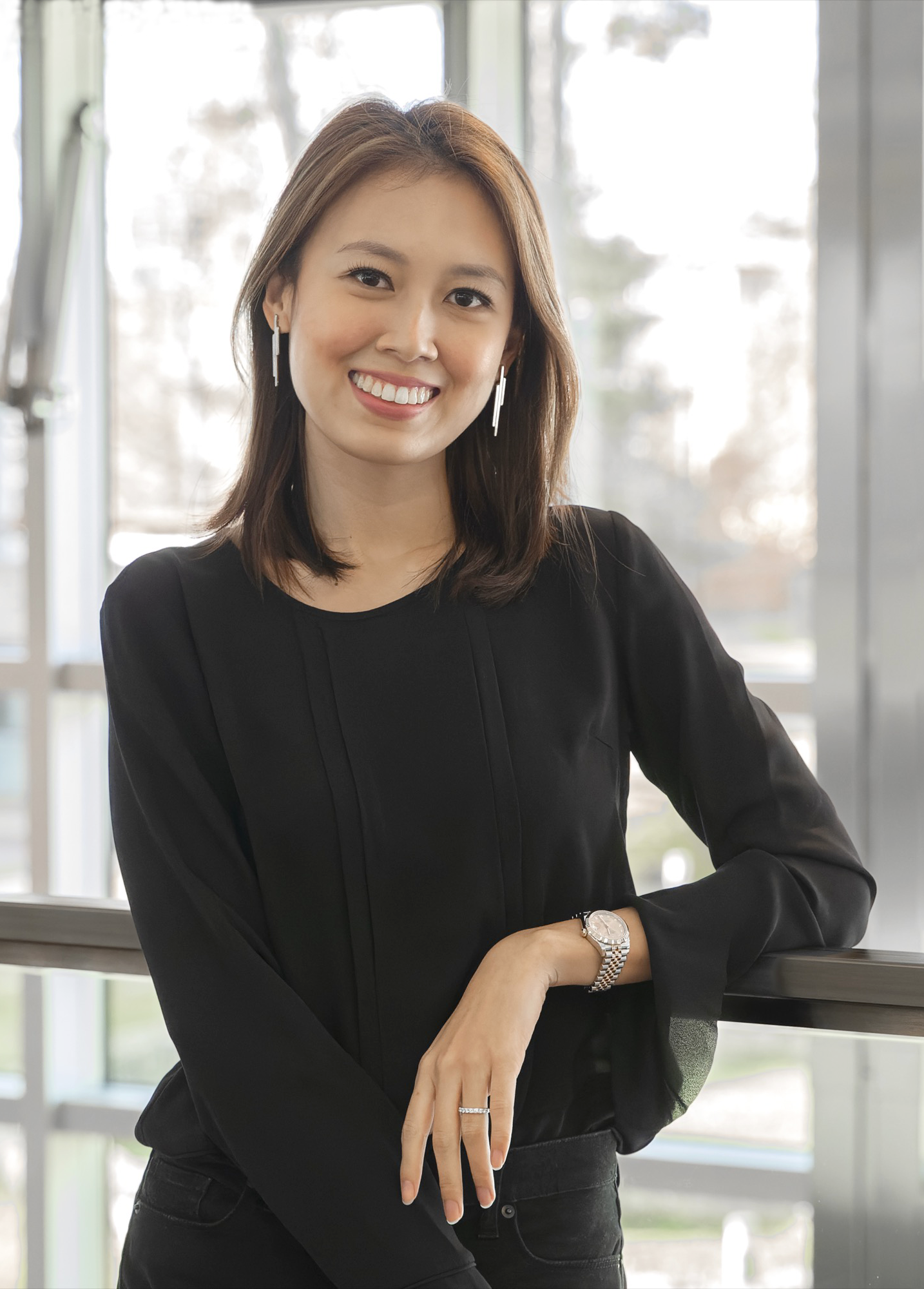I have learnt how to manage teams more efficiently and how to develop a strategic plan by applying some of the frameworks taught in class, and redefined my financial planning.
Valentina Agude Lovargas

Can you introduce yourself to us - where you are from, what is your professional journey so far?
I am the CEO and Co-Founder of Salva Health.
At Salva, we believe that innovation through health technologies can help us solve many of the healthcare challenges that we face as a society.
We have developed our first product JULIETA that helps in risk screening for breast cancer. This can potentially lead to early detection and a substantial drop in mortality and morbidity rates associated with this type of cancer.
How did your venture idea came to be?
While at university, my co-founder and I participated in an entrepreneurship competition and we decided that we wanted to focus on solutions for women.
While brainstorming ideas we identified opportunities in various topics including pregnancy, sexual education and healthcare. We eventually landed on breast cancer detection because the mother of one of our closest friends was enduring cancer treatment at the time and that incentivised us to understand more about early cancer detection and treatment.
During our research phase, we found out that breast cancer had a survival rate of 90% when diagnosed in early stages, but despite this encouraging figure, it is the leading cause of death by cancer in women.
This increase in mortality occurs mainly due to late detection due to lack of access to diagnostic tests that, despite being excellent detection alternatives, have high access barriers that limit their availability. Mainly the high costs of acquiring the devices, the requirements for infrastructure and specialised personnel to perform the readings, the fact that many emit radiation and therefore limit the population that can be exposed to them and that they are extremely uncomfortable and painful for women.
The sum of these barriers is so great that in Colombia (where I'm from), for example, less than 5% of women end up having recurrent and preventive exams.
This is where our puzzle began. If women are not able to access diagnostic tests, the tests have to reach women. It is with this objective that we designed a portable device, which eliminates all current access barriers to provide women with a test that can truly be performed from anywhere.
What has been the most challenging aspect about being a female founder?
Unfortunately the tech and biotech sectors are still very much male-dominated industries. As a result there is a lack of visible female role models in leadership positions.
I've had to open my own path through the system because I didn't have anyone with a similar experience to look up to.
At the beginning of my journey I would often feel alone and get overwhelmed with the uncertainty. As a lesson from this experience, it is very important to create a community and find allies in the system that can help you navigate the uncertainty of entrepreneurship.
Have you ever faced discrimination of any sort in your profession and, if so, how have you overcome it?
In my case I have been very lucky to have a great support system that has allowed me to develop my business with little to no gender friction. I am aware however, that this is not the case for most female founders and it is a recurring topic amongst us.
Only one in 10 startups that get VC financing have a female founder. There is a bias that still has to be brought down about women in tech and women leading projects with high uncertainty.
Aside from gender discrimination, I have faced some discrimination based on my citizenship on various occasions. Being Colombian I've had to face some uncomfortable and painful situations where stockholders make assumptions about my business or myself based on the country that I am from.
Personally, I believe the best way to overcome discrimination is through education. I've had the chance to prove people wrong, raise my Colombian flag up high and leave people in awe of how strong a women leader can be when it comes to managing complex teams in high tech businesses.
Why did you decide to come to INSEAD at this point of your professional journey?
I chose to come to INSEAD because doing an MBA was a goal I set for myself a long time ago.
I knew this was a milestone I wanted to achieve and I set my mind to it. The timing was based on my business's timing, this year we are going through some research and regulatory processes that allowed me to work remotely and have the time availability to fulfil my academic responsibilities.
This year has challenged me to manage my time as best I can and to trust my team and their abilities.
How has INSEAD helped you in your personal and professional journey so far?
I'm very proud to say that I have been able to enjoy my time at INSEAD, leverage from the resources they offer for entrepreneurs and apply some of the academic lessons directly to my business.
Specifically I have learnt how to manage teams more efficiently. I've been able to optimise my resource allocations, develop a strategic plan by applying some of the frameworks taught in class and redefined my financial planning.
Through these improvements, I was able to close my first financing round and structure my team better. The leadership programme has also taught me how to communicate and understand my team better, it has helped me become a better leader for my team.
Aside from the academic part, I've also met some of the most amazing and brilliant people that have helped me think through my business model and improve it. I'm very grateful to my classmates for their support and willingness to help.
Overall it has been a very fulfilling experience for me.
What is one piece of advise you would share with INSEAD current and prospective female candidates about launching their own venture?
Entrepreneurship is a fascinating and scary journey.
Uncertainty can sometimes be overwhelming and there is a constant feeling of loneliness that we must learn to deal with.
My advice would be to use the INSEAD community as a support system, leverage from the resources they have available and constantly remind yourself of the purpose behind your venture. Build a support system, be brave and stay creative.
Is there any other comment or information you would like to share to the INSEAD community about yourself?
The best part of my INSEAD experience has been the people I've met along the way. My classmates have been my best support system and they have encouraged me to keep pursuing my venture. I'm truly grateful to them and the entire INSEAD community.




